Clay litter can be bad for cats as the dust from clay litter can pose respiratory issues for both cats and humans. Silica dust, found in clay particles, has been linked to lung cancer and other respiratory diseases, affecting individuals with asthma or other respiratory problems.
It’s important to consider alternative litter options for the well-being of your feline companion. When it comes to the health of our furry friends, it’s crucial to carefully consider every aspect of their environment, including the type of litter used in their litter box.
Clay litter, while affordable and absorbent, can pose health risks to both cats and their owners. The dust produced by clay litter, particularly the silica dust contained in clay particles, has been linked to respiratory problems and even lung cancer in cats and humans. This can be exacerbated for individuals with pre-existing respiratory issues such as asthma. We will explore the potential dangers of clay litter to cats and provide alternative options for a safer litter choice.
The Dangers Of Clay Litter
Many cat owners choose clay litter for its absorbency and ease of use. However, there are significant concerns regarding the potential dangers associated with this type of litter. Understanding these dangers is crucial for ensuring the health and well-being of your feline companions.
Silica Dust And Respiratory Health
Silica dust, a common component of clay litter, can pose serious respiratory hazards. When cats dig in the litter box or when the litter is poured, it can create airborne silica particles that are easily inhaled by both cats and humans. This inhalation can lead to lung irritation and exacerbate respiratory issues. Additionally, prolonged exposure to silica dust has been linked to potential carcinogenic effects, raising further concerns about the safety of clay litter.
Impact On Cats With Respiratory Issues
Cats with pre-existing respiratory issues, such as asthma, are particularly vulnerable to the dangers of clay litter. The inhalation of silica dust can significantly worsen their condition, leading to increased breathing difficulties and discomfort. For cats already susceptible to respiratory problems, the use of clay litter can further compromise their respiratory health, potentially leading to complications and decreased quality of life.
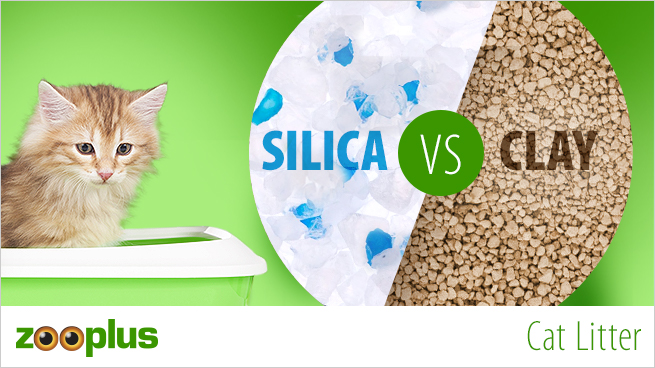
Credit: www.zooplus.co.uk
Alternatives To Clay Litter
While clay litter may be commonly used for its affordability and absorbency, it is important to consider the potential negative impacts it can have on both cats and the environment. Fortunately, there are several alternative options available that can provide a safer and more eco-friendly litter solution for your feline friends.
Unscented, Clumping Clay Litter
One alternative to traditional clay litter is unscented, clumping clay litter. This type of litter offers similar benefits to regular clay litter, such as absorbency and ease of cleaning. However, unscented varieties are preferred as scented litters can contain chemicals that may irritate a cat’s sensitive nasal passages.
Environmental Concerns Of Clay Litter
Aside from potential health concerns, clay litter also poses environmental issues. The majority of clay litter is non-biodegradable and is derived from strip mining, which can cause deforestation and disrupt ecosystems. Additionally, the production and transportation of clay litter contribute to carbon emissions and pollution. For pet owners looking to reduce their environmental impact, exploring alternative litter options is crucial.
- Wood-Based Litter: Made from recycled paper or sawdust, wood-based litters are more eco-friendly and biodegradable compared to clay litter. They are also often low in dust, making them suitable for cats with respiratory sensitivities.
- Plant-Based Litter: Litters made from materials such as corn, wheat, or soy are another viable alternative to clay litter. These litters are typically biodegradable, renewable, and can be flushable, making them convenient for disposal.
- Crystal Litter: Crystal litters, composed of silica gel, offer exceptional odor control and can absorb moisture effectively. While silica gel is safe for cats, it’s important to keep in mind that some cats may not prefer the texture of crystal litter.
Choosing the right alternative litter for your cat involves considering factors such as your cat’s preferences, any existing health conditions, and your environmental values. By making a conscious choice to explore alternative litter options, you can provide a safer and more sustainable environment for both your furry friend and the planet.
Health Risks Associated With Clay Litter
Clay litter for cats may pose health risks due to the presence of silica dust. Inhaling this dust can lead to respiratory problems and even lung cancer. It’s particularly concerning for cats and humans with pre-existing respiratory issues. Opting for unscented and clumping clay litter is generally recommended by experts.
Sodium Bentonite In Clay Litter
Certain clay litters contain sodium bentonite, a clumping agent that is commonly found in traditional clay litters. While sodium bentonite helps to create solid clumps, making it easier to clean the litter box, it can be harmful if ingested by your cat.
When a cat grooms themselves, there is a possibility that they may ingest some clay litter particles along with the fur. If the litter contains sodium bentonite, these particles can swell when they come into contact with liquids in the cat’s digestive tract. This can potentially lead to gastrointestinal issues and blockages in some cases, which can be serious and require veterinary intervention.
Respiratory Problems From Dust Exposure
One of the main health risks associated with clay litter is the dust it produces. When cats dig in the litter box, the clumping clay particles can become airborne, leading to dust exposure for both your cat and yourself.
This dust can pose a risk to cats, especially those with respiratory problems or sensitivities. When inhaled, the dust can irritate the delicate tissues in their respiratory system, causing coughing, wheezing, and difficulty breathing. Over time, repeated exposure to the dust can even lead to the development of more serious respiratory conditions.
It’s not only cats who are at risk; humans can also be affected by the dust. If you or anyone in your household has asthma or other respiratory issues, the dust from clay litter can exacerbate these conditions, making it even more difficult to manage symptoms.
While clay litter may be convenient and affordable, it’s important to consider the potential health risks it poses to both cats and humans. The sodium bentonite in clay litter can be harmful if ingested by cats, potentially leading to gastrointestinal blockages. Additionally, the dust produced by clay litter can cause respiratory problems for cats and humans, especially those with existing respiratory issues.
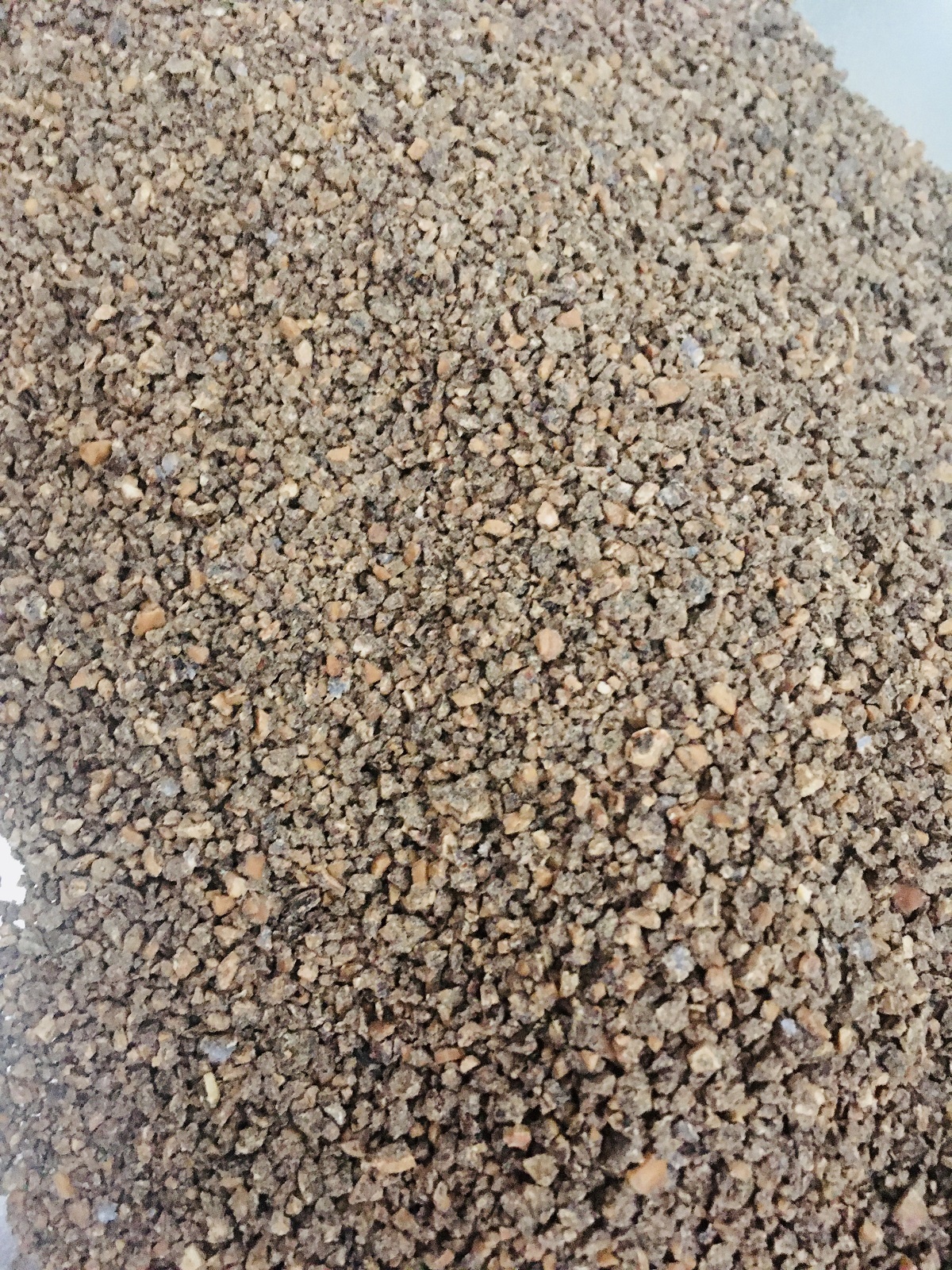
Credit: caticles.com
Safe Cat Litter Options
Cats are sensitive animals, and the type of litter you choose for their litter box can have a significant impact on their health and well-being. While clay litter is widely used, it may not always be the safest option for your feline friend. Fortunately, there are alternative Safe Cat Litter Options that are worth considering for the health and safety of your beloved pet.
Feline Pine As An Alternative
Feline Pine is an excellent alternative to traditional clay litter. It is made from 100% natural pine that is highly absorbent and helps control odors effectively. The natural pine also contains properties that neutralize ammonia, creating a healthier environment for your cat. Furthermore, Feline Pine is biodegradable, making it an eco-friendly option for conscientious pet owners.
Low-tracking Litter For Cat Safety
Low-tracking litter is another safe option for cats, as it minimizes the spread of litter particles throughout your home, reducing the risk of your cat ingesting or inhaling harmful substances. Look for low-tracking litter made from natural materials such as paper, corn, or wheat. These litters are not only safe for your cat but also offer the added benefit of being environmentally friendly.
Reddit Community Insights
“Discover the best litter alternatives for your cat’s health on Reddit Community Insights. Uncover the potential risks of using clay litter for your feline friend, with insights from experienced pet owners and veterinarians. “
Community Opinions On Clay Litter Safety
Recommendations For Safe Litter
Introductory Paragraph: Reddit Community Insights
In the Reddit community, discussions around the safety of clay litter for cats have sparked diverse viewpoints regarding its potential risks. Many members share concerns about clay litter containing silica dust, which can pose respiratory dangers to both feline friends and their human companions. Let’s delve into the insights from this online platform.
Community Opinions on Clay Litter Safety
- Some Redditors express worries about the silica content in clay litter, highlighting the possible health risks associated with inhaling silica dust.
- Others raise concerns about the environmental impact of clay litter and its potential respiratory issues in cats.
- Several users emphasize the importance of choosing alternative litter options to safeguard the well-being of their furry companions.
Recommendations for Safe Litter
- Opt for unscented, clumping clay litter as a cost-effective and absorbent choice for your cat’s litter box.
- Consider exploring alternative litter options such as biodegradable or natural alternatives to mitigate potential health and environmental risks.
- Prioritize regular cleaning of the litter box and proper ventilation to minimize dust exposure for you and your cat.
In conclusion, seeking safe litter alternatives and staying informed about potential hazards can contribute to creating a healthier environment for your beloved feline friend.
Expert Opinions On Litter Safety
Experts caution against clay litters for cats due to silica dust inhalation risks, linked to respiratory diseases. Opting for unscented clumping clay litter remains a popular, cost-effective choice endorsed by veterinarians for its absorbency and easy maintenance, particularly beneficial for cats with respiratory concerns.
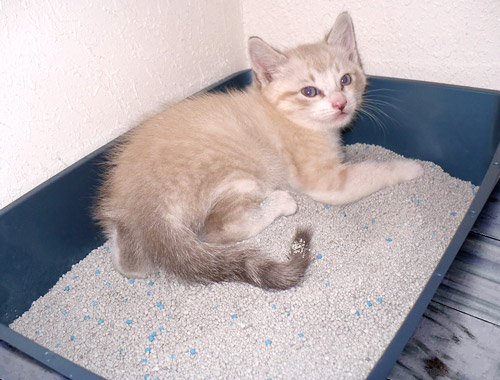
Credit: petpooskiddoo.com
Frequently Asked Questions
Is Clay Cat Litter Unhealthy For Cats?
Clay cat litter can be unhealthy for cats due to silica dust linked to respiratory issues and lung cancer.
What Type Of Litter Is Best For Cats?
The best litter for cats is unscented clumping clay litter. It is economical, absorbent, and easy to clean.
Why Not Clay Cat Litter?
Clay litter contains silica dust which can cause respiratory issues, posing risks for both cats and humans. It may exacerbate problems for those with asthma or respiratory ailments. Therefore, it’s best to consider alternative, safer options for your cat’s litter.
What Cat Litter Should I Avoid?
Avoid clumping clay litter with sodium bentonite as it can be harmful if ingested and may cause respiratory problems due to the dust it produces. Opt for unscented, clumping clay litter as it is economical, absorbent, and easy to clean.
Conclusion
Clay litters may have potential health risks for both cats and humans due to silica dust. Consider opting for unscented, clumping clay litters with low dust emissions. Always prioritize your feline companion’s respiratory well-being when choosing the best litter. Explore alternative options like Feline Pine to ensure a safe and healthy litter environment for your cat.


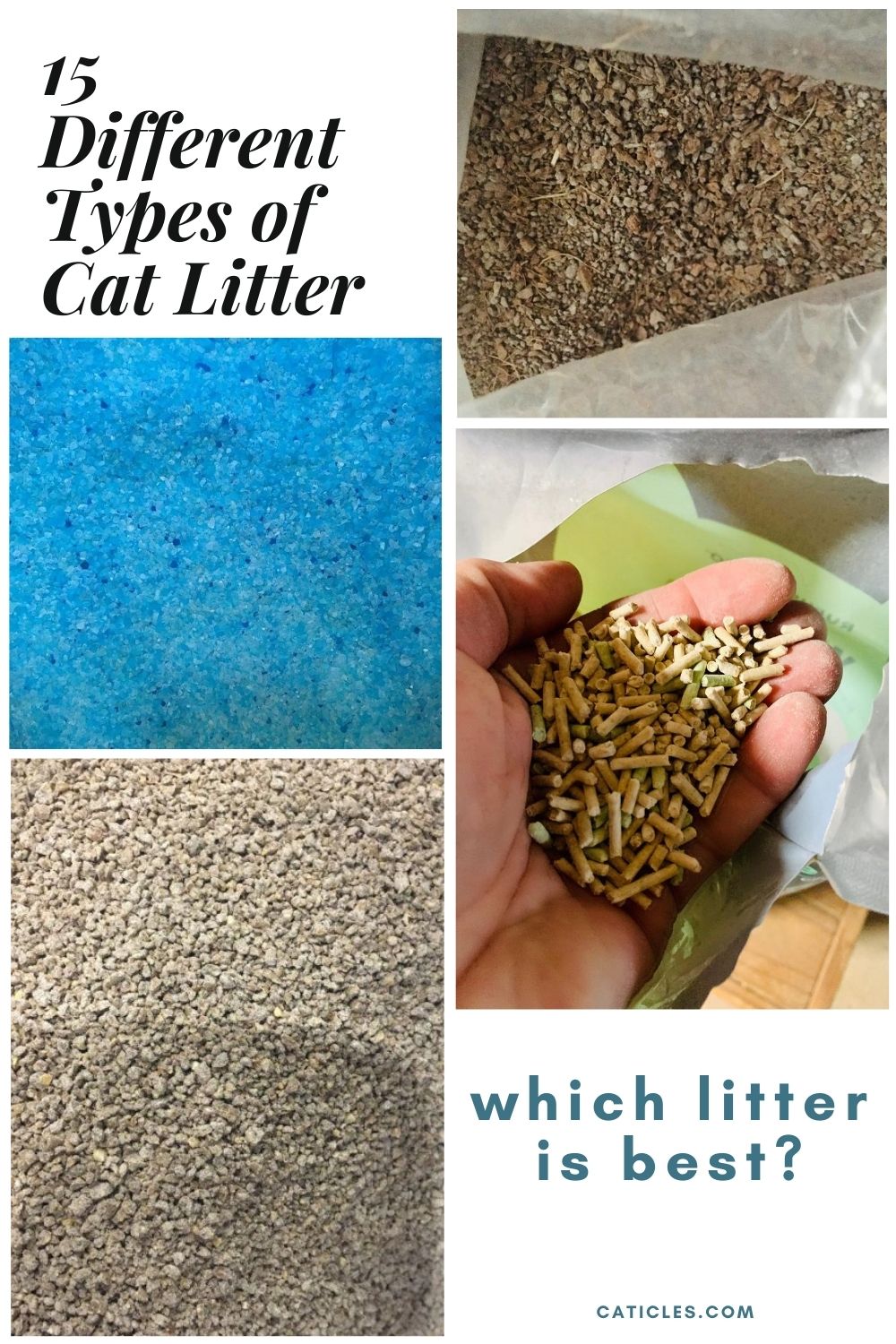
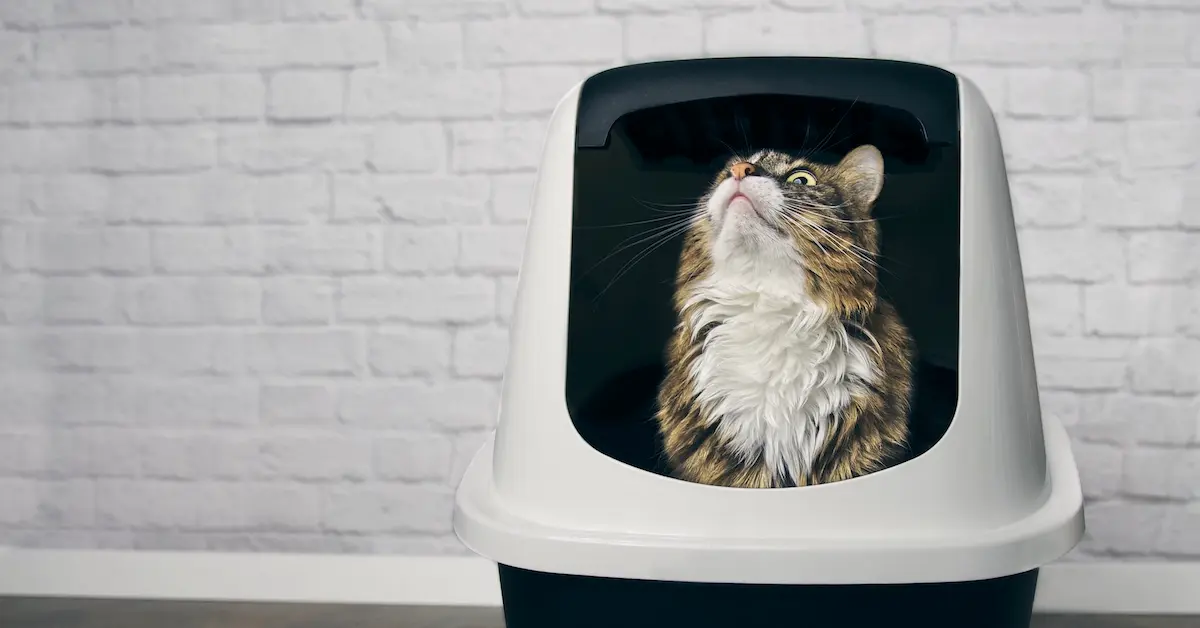
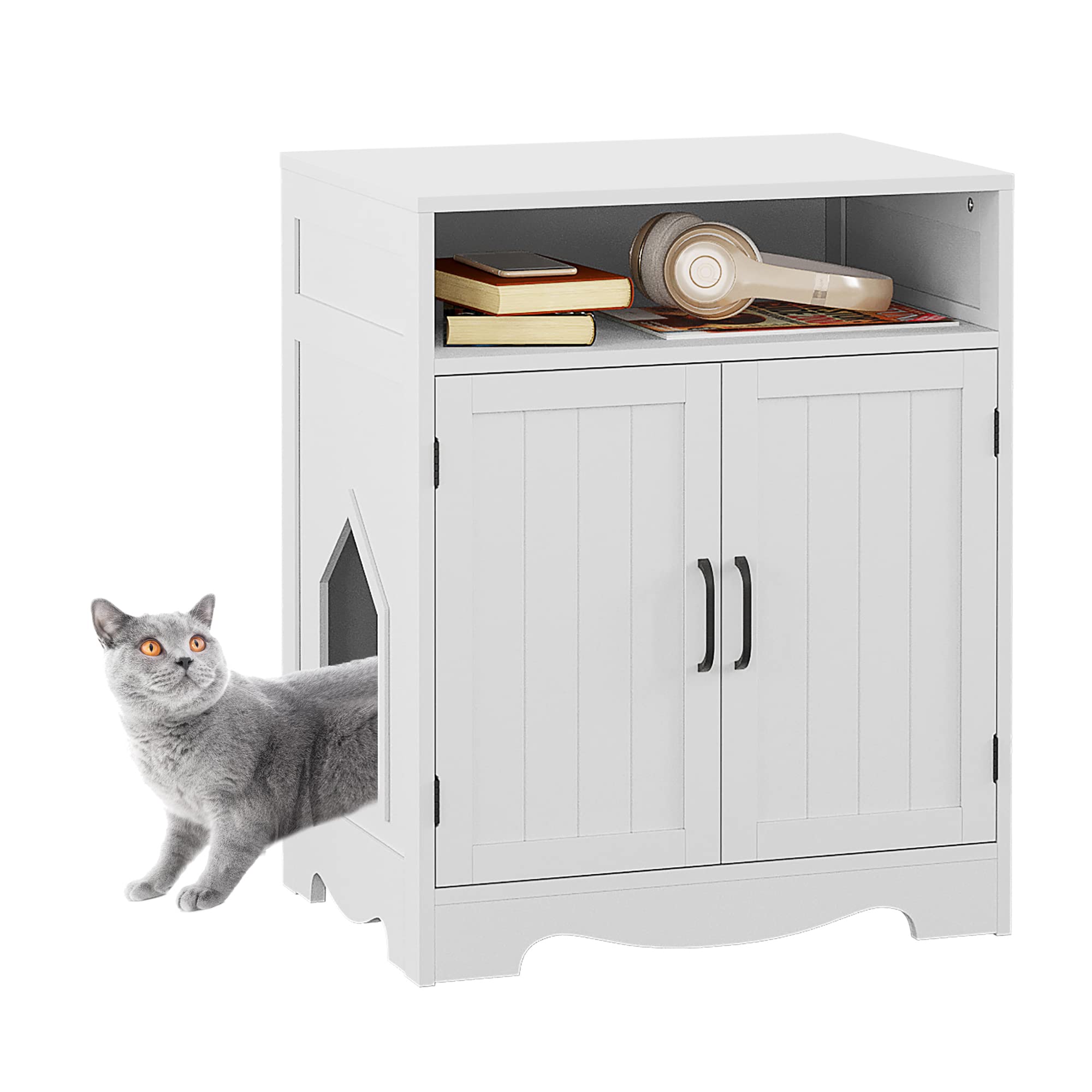
One Response